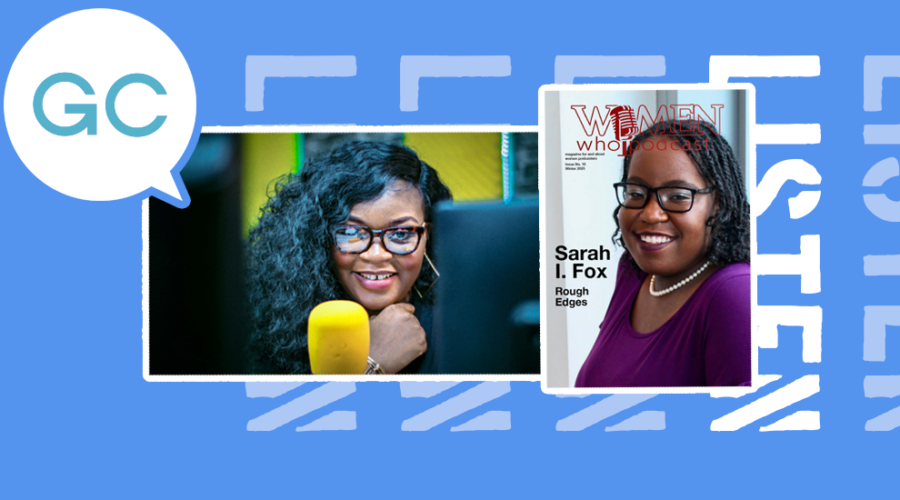Podcasting is supposed to be one of the most accessible creative platforms out there. In theory, all you need is a mic, an idea, and the nerve to put your voice out into the world. But when you actually look at the podcast charts, the recommended lists, and the big industry awards, you start to notice a pattern – men’s voices still dominate. And for independent women podcasters, breaking through that noise is even harder.
In data produced for AT&T in 2020, 27% of podcasts are hosted by women. Regarding gender and genre, the data also found that 58% of men who listen to podcasts prefer listening to a male voice. In top-rated Spotify podcasts, 55% of podcasters identified as men and 60% of podcasters identified as men for top-rated Apple Podcasts. For independent creators – women running their own shows without network backing – the visibility gap gets even wider.
And it’s not just about gender. Intersectionality matters here, too. Women of color, LGBTQ+ women, disabled women, and women from underrepresented communities face even bigger hurdles when it comes to getting noticed and taken seriously in the podcasting world. These women are telling stories that often don’t fit the mainstream media mold and those are precisely the stories podcasting, at its best, should be lifting up.
This is exactly why I created Women Who Podcast magazine – to give women independent podcasters from around the world the accolades they deserve. It’s so important to amplify their voices and their stories. Representation isn’t just about fairness – it actively shapes what listeners think expertise sounds like.
When women are missing from the charts, from the “Top Podcasts of the Year” lists, or from the big awards, it reinforces the outdated idea that men’s voices are somehow more authoritative, more entertaining, or more podcast-worthy.
To really understand why visibility matters so much, you need to know what independent women podcasters are up against behind the scenes.
Independent creators in general struggle with monetization, but the gender gap here is undeniable. The boys club is still a real thing and also exists in the podcasting world. Why are male-hosted podcasts twice as likely to secure sponsorships compared to female-hosted shows? Because the advertising industry tends to bet on creators who fit a certain mold. And historically, that mold has been overwhelmingly male, white, and already connected to mainstream media or celebrity culture.
Then there’s the visibility problem. Algorithms on platforms like Spotify and Apple Podcasts prioritize shows with existing momentum – meaning podcasts with more reviews, more streams, and more social media buzz. That system naturally favors creators who already have larger networks or media support. Independent women podcasters, who are often building their audiences from scratch, start at a disadvantage that’s tough to overcome.
And we have to talk about harassment. A 2022 report from the Center for Countering Digital Hate found that women content creators – podcasters included – experience significantly more online abuse than their male counterparts. Women covering politics, social justice, or anything that challenges the status quo face the worst of it, but even lifestyle podcasters can find themselves targeted.
This constant harassment doesn’t just impact mental health – it can actually drive women out of the space altogether.
Podcasting is at its best when it reflects the full range of human experiences
Finally, there’s the simple fact that podcasting – for all its creative freedom – still has a bit of an insider problem. The big festivals, the major industry events and the influencer panels often default to the same familiar faces. And unless you already have connections (or a huge viral hit), breaking into those spaces as an independent creator is a serious uphill battle.
So what’s the solution?
Part of it comes down to us as listeners. We need to actively seek out, listen to, and promote independent women podcasters. Reviews, word of mouth, and social shares all help these creators game the algorithm and get the visibility they deserve.
Another way is supporting resources like Women Who Podcast magazine, which I founded to highlight women in podcasting. It’s very humbling to read about why podcasters started their show, how they overcame challenges, and the difference they have made by sharing their story and the stories of their guests.
But it’s not just up to the audience – the podcasting industry itself has work to do. Platforms can and should create more dedicated showcases for independent women podcasters, particularly those from marginalized backgrounds. Grants and funding programs specifically for women-led podcasts would make a difference, too. And every industry award, directory, and festival needs to take a hard look at how they’re selecting and promoting their featured shows.
Podcasting is at its best when it reflects the full range of human experiences. Women have always had stories to tell, opinions to share, jokes to crack, and truths to uncover.
It’s time to make sure the world is actually listening.
Find your next favourite podcast by scrolling through our extensive Podcast Showcase series. Get your podcast featured here.
Images: Ugwu Samuel and Women Who Podcast magazine

